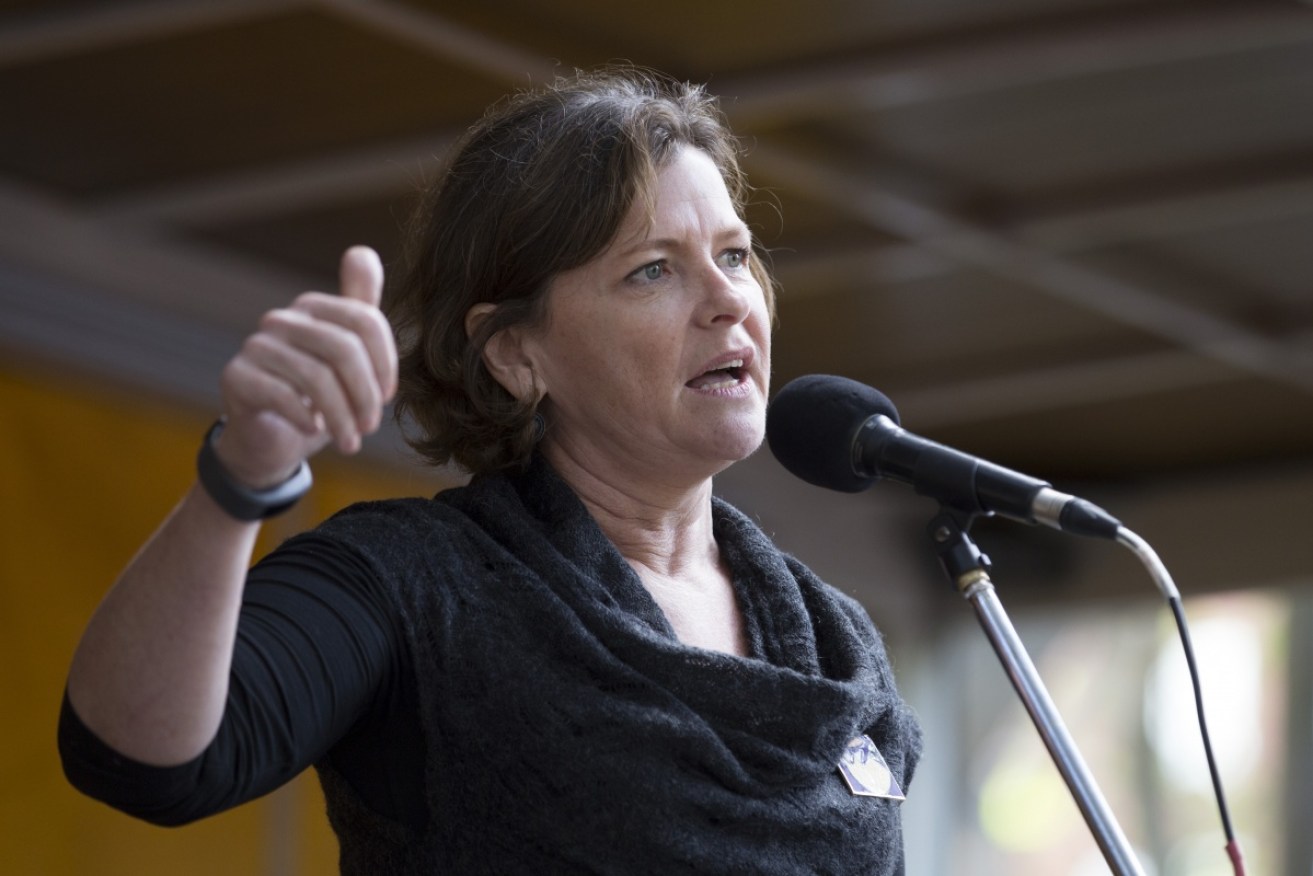Think tank’s claim super funds bankroll unions is ‘wildly misleading’: ACTU


ACTU president Ged Kearney said the IPA's report was 'politically motivated'.
A provocative study claiming industry superannuation funds are ‘rivers of gold’ for trade unions has been dismissed as “mischievous”, “wildly misleading” and “politically motivated” by the Australian union movement’s peak body.
On Wednesday, free market think tank the Institute of Public Affairs released a report in which it claimed the union movement had received more than $18 million from industry super funds between 2013 and 2017.
That was around nine times what was paid to employer groups – a discrepancy that led the IPA to call for reforms to super fund governance rules.
But in an interview withThe New Daily, Ged Kearney, president of the Australian Council of Trade Unions, argued these figures were a “gross misrepresentation” of the facts designed to further the government’s cause in shaking up the super industry in favour of the big banks.
She claimed the report ignored the fact that employer-appointed super fund directors were paid “exactly the same” as those appointed by unions.
The key difference, she said, was that almost all union-appointed directors’ fees were paid directly to the unions, while most employer-appointed directors’ fees were paid directly to the directors.
In other words, fees for the former went into the union’s bank account, while fees for the latter went into the individual’s bank account.
“It’s a gross misrepresentation,” Ms Kearney, who is a union-appointed director of industry super fund Cbus, said of the report.
“Employer representatives are paid exactly the same as employee representatives. The difference is we give the money back to the unions so that they can fight the good fight for members wages and working conditions – and that’s a good thing.”
Analysis of Cbus’ most recent remuneration report suggested Ms Kearney’s claims were factually accurate at least in that fund’s case.
Who controls industry funds?
Industry super funds operate on an ‘equal representation’ model, which means they are governed equally by employer- and employee-nominated trustee directors.
This set-up means directors appointed by unions should be paid roughly the same amount of money as those appointed by employers. But on the face of it, the IPA report seemed to suggest that much more money was going to union directors.
But a close study of Cbus’ most recent board remuneration report showed that this was not the case.
In the 2016-17 financial year, Cbus paid $488,601.87 in directors’ fees directly to various unions. It paid a similar amount, $435,132.56, into employer-sponsored directors.
Of the seven employer-sponsored directors, only one – Wilhelm Harnisch – had part of his fees paid directly to his employer group, Master Builders Australia (MBA).
Those figures exclude fees paid to independent directors, as well as those paid to the chair of the board Steve Bracks, a former Victorian premier who was sponsored by the ACTU, and the chair of the investment committee Stephen Dunne, a former CEO of AMP whose sponsorship was not stated.
Both Mr Bracks and Mr Dunne were the highest-paid directors, receiving $158,743.11 and $166,715.55 respectively. Both received their fees directly.
The New Daily asked MBA if it would prefer union-appointed director fees to go to the directors themselves rather than the unions.
At time of publication no response had been received. However, a spokesperson told The New Daily that newly appointed Cbus director Denita Wawn – who is also chief executive of MBA – would have her fees paid directly to the employer group.
‘Mouthpiece for the Liberal Party’
Ms Kearney said the IPA’s report was “politically motivated” and “proved” that they were “just a mouthpiece for the Liberal Party”.
Her reason for saying this was that the government is currently attempting to pass into law a bill that would significantly change the board structure of industry funds, forcing one third of directors to be ‘independent’ – i.e. have no connection either to employer groups or unions.
Separate legislation would remove the superannuation from the industrial awards system – a move that is widely seen as being in the big banks’ interest, as it would allow them to market their default superannuation products directly to employers.
So far both pieces of legislation have failed to get through the Senate.
The New Daily asked the two authors of the IPA report to answer the ACTU’s criticisms. At time of publication they had declined to do so.
Disclosure: The New Daily is owned by industry super funds.








